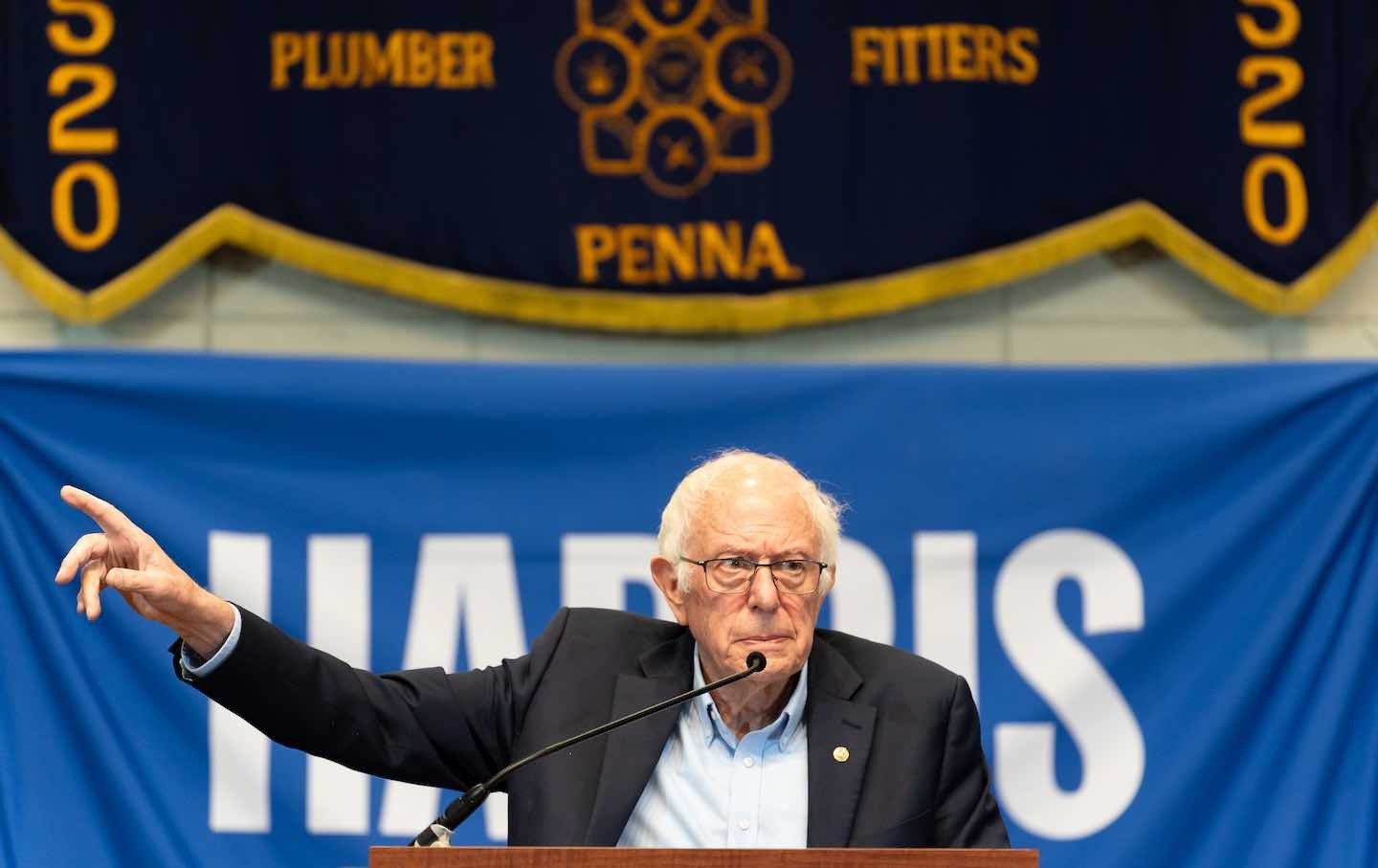cross-posted from: https://lemmy.ml/post/22940159
Bernie Sanders caused a stir last week, when the independent senator from Vermont and two-time contender for the Democratic presidential nomination sent a post-election email to his progressive supporters across the country. In it, he argued that the Democrats suffered politically in 2024 at least in part because they ran a campaign that focused on “protecting the status quo and tinkering around the edges.”
In contrast, said Sanders, “Trump and the Republicans campaigned on change and on smashing the existing order.” Yes, he explained, “the ‘change’ that Republicans will bring about will make a bad situation worse, and a society of gross inequality even more unequal, more unjust and more bigoted.”
Despite that the reality of the threat they posed, Trump and the Republicans still won a narrow popular-vote victory for the presidency, along with control of the US House. That result has inspired an intense debate over the future direction not just of the Democratic Party but of the country. And the senator from Vermont is in the thick of it.
In his email, Sanders, a member of the Senate Democratic Caucus who campaigned in states across the country this fall for Vice President Kamala Harris and the Democratic ticket, asked a blunt question: “Will the Democratic leadership learn the lessons of their defeat and create a party that stands with the working class and is prepared to take on the enormously powerful special interests that dominate our economy, our media and our political life?”
His answer: “Highly unlikely. They are much too wedded to the billionaires and corporate interests that fund their campaigns.”



[The most successful third-party candidacy came in 1912, when Theodore Roosevelt finished second and got around 27 percent of the popular vote. Of course, he was a former president of the United States who hadn’t been renominated by his party and formed his own party. In recent times, H. Ross Perot’s third-party candidacy in 1992 got 19 percent of the popular vote, the second most in US history—but he got zero electoral votes. With the electoral college system, it’s highly, highly unlikely a third-party candidate could win an election.
Polls put the two biggest parties, the Green Party and the Libertarian Party, at around one percent of the popular vote, whereas in 2016, they got around four to five percent of the vote.](https://www.bu.edu/articles/2024/is-voting-third-party-a-wasted-vote/)
[Third parties that have been established were either short lived or, like the Libertarian and Green Parties, have had little impact on federal and state elections other than bringing more attention to issues for voters or siphoning votes from major-party candidates, sometimes serving a spoiler role in elections.
However, as has been the case for prior third-party candidates, Kennedy’s initially higher levels of support eventually faded. Kennedy also struggled to gain ballot access in many states, with his efforts landing him on the ballot in 21 states, and 13 additional states pending before he suspended his campaign and endorsed Trump.](https://news.gallup.com/poll/651278/support-third-political-party-dips.aspx)
Thank you very much for taking the time to type out all of that information, I really appreciate it! I would very much like to see the two party system overturned, and understanding the issue better helps me consider which (probably crappy) route has the best chances.
I don’t think that saying someone wants a third relevant party means they’re intrinsically acting in bad faith. I absolutely understand seeing it as completely unrealistic. It probably is. I just also have a really hard time seeing this system yielding the kind of represtation this country needs, and that’s something I desperately want for this country.
In an economy, only two companies vying for control of a market is a duopoly, and it’s unlikely between the two of them that they’ll do a good job of serving consumers. There’s no meaningful competition driving parties to really offer compelling solutions to the public, because both parties have to option of just saying “well I’m not THAT guy over there, the one you hate”
I’d like to see the first past the post voting system replaced, but l worry neither party will ever offer the public the option to replace it if it threatens their control. Obviously republicans never will. But I also don’t really believe another party can win until it’s changed.
Its an intensely frustrating status quo. And I can’t help but look backwards desperately wish we could have had bernie instead of Hillary. :(
Thanks for having actual discourse and being genuine. I also would like ranked choice voting and a party that better represents Americans.
Unfortunately because of citizens united and the two party system and first past the poll voting we have to support the lesser of two evils to make progress.
And I realize that not everyone who suggests we ignore that reality is acting in bad faith. But it is definitely a strategy of bad faith actors and then repeated by those who don’t know any better.
Thank you for discussing with me too, I really appreciate it. I feel very strongly that because there are so few people here compared to mainstream platforms, we all have a much greater impact on the culture of this space. I want to be a part of it being as sincere and kind as possible.
We don’t completely agree, and that’s okay, I appreciate you sharing your perspective with me. I hope you have a lovely day my friend. If you celebrate it, happy Thanksgiving!
Arguably more successful is Abraham Lincoln. Though, it might be more accurate to say that the newly formed Republican party didn’t kill the Whig party; rather the Whig party killed itself due to not listening to their constituents (which seems pretty relevant to our current situation)